The Killing Fields of East New York: Book Talk with Stacy Horn
East New York, once a thriving working-class neighborhood on its way up, has the highest number of unsolved murders in New York City. Why?


Lou Reed sang, “I’m a New York City man, baby,” and that he was. Reed was born in Brooklyn, raised on Long Island, and spent most of the rest of his life in New York City. Locations all over New York City, from Coney Island to Harlem, pop up in the lyrics of songs from Reed’s band The Velvet Underground and his solo career. The legacies of Reed and his band are inextricable from the history of the New York City rock scene of the 1960s and 1970s.
Inspired by the New York Public Library for the Performing Arts exhibit, Lou Reed: Caught Between the Twisted Stars in 2024, we’ve compiled 10 New York City haunts of Lou Reed and the Velvet Underground, from iconic rock venues and recording studios to old apartments and favorite eateries. Each location is paired with an image from the NYPL exhibit or an image of the current location if it still exists.
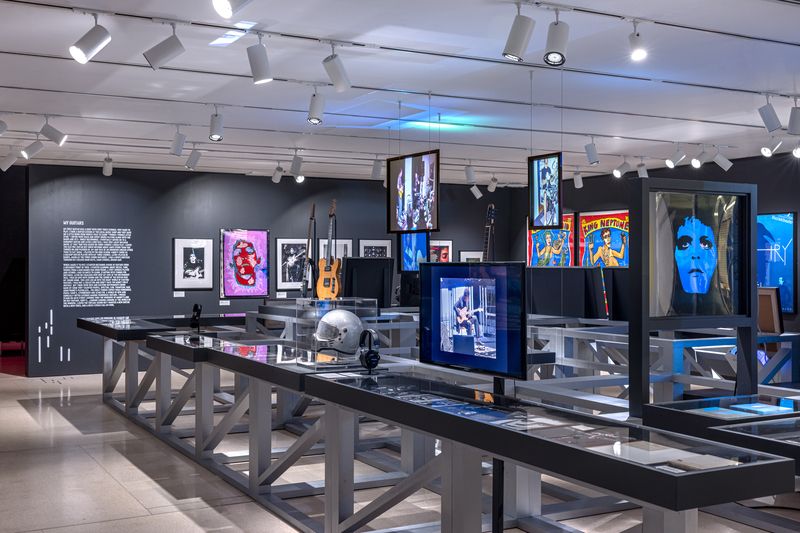
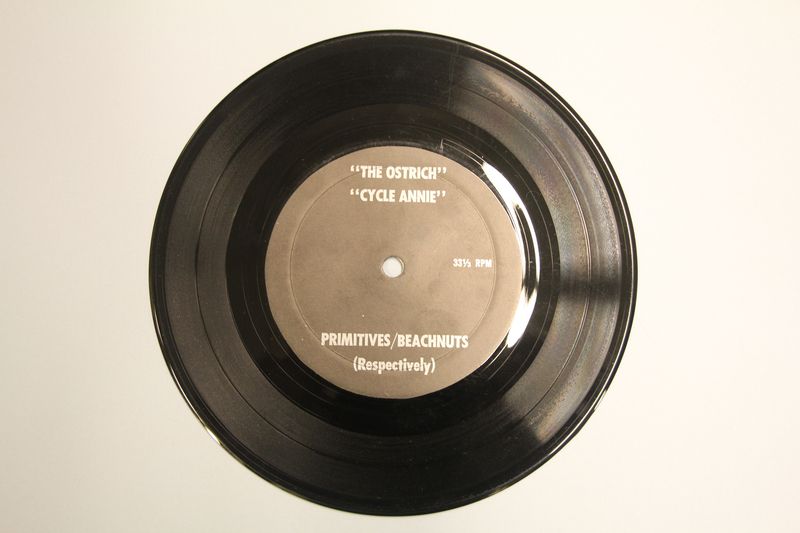
After graduating from Syracuse University in 1964 with a degree in English, Lou Reed got a job as a songwriter for Pickwick Records in Long Island City, formerly located at 8-16 43rd Ave. The record company was modeled after the Brill Building in Manhattan, where a team of songwriters churned out pop hits. It was at Pickwick that Reed first collaborated with future Velvet Underground bandmate John Cale. One song Reed created while at Pickwick was “The Ostrich,” a joke song inspired by “The Twist.”
Reed only worked at Pickwick for a short time, but his time there was transformative. He honed his songwriting skills and became familiar with the inner workings of a recording studio. He also forged relationships that would greatly impact his musical career, such as his relationship with founding Velvet Underground member John Cale. The building Pickwick once occupied was demolished and replaced with a new red brick building.
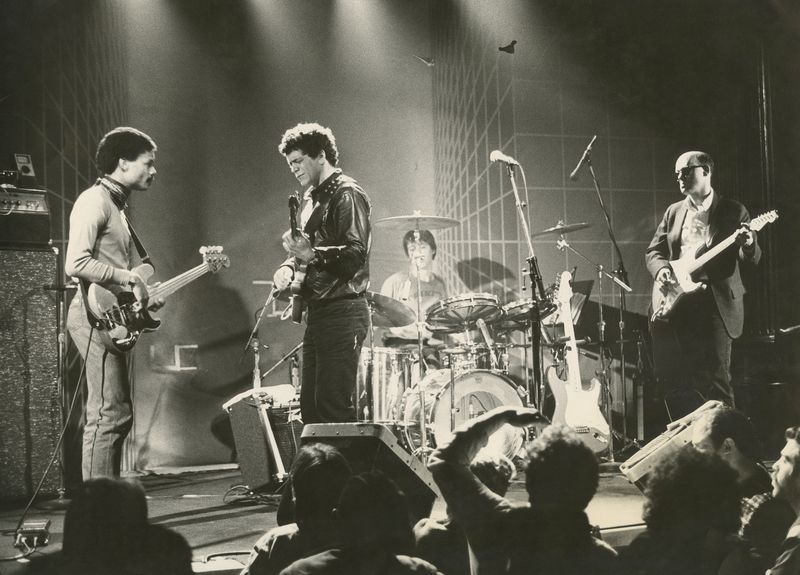
The foundation of The Velvet Underground was built at John Cale’s apartment at 56 Ludlow Street on Manhattan’s Lower East Side. The sparse apartment lacked a bathroom, heat, and electricity, but was filled with the early musings of the now iconic band.
In this apartment, Reed, John Cale, Reed’s Syracuse classmate Sterling Morrison and Cale’s roommate Angus MacLise rehearsed early Velvet Underground songs. Tape recordings of these sessions emerged in the 1990s.
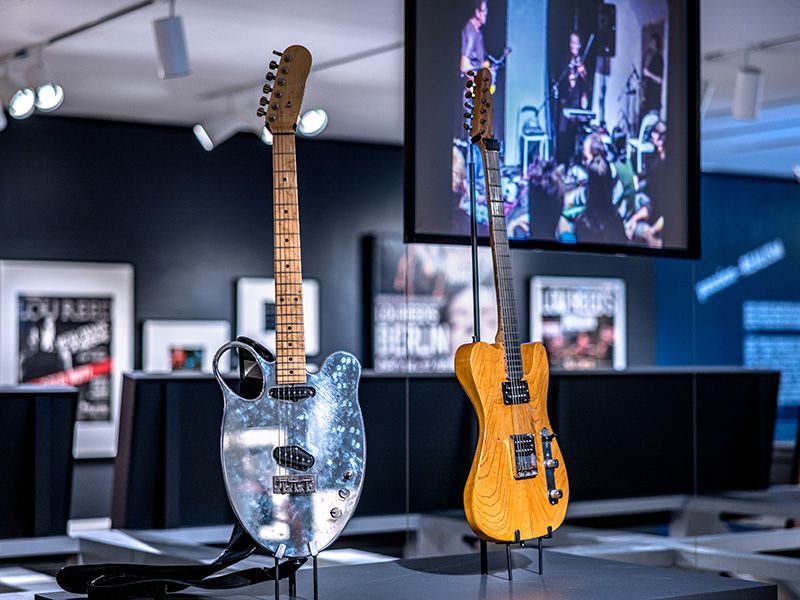
Folk singer Odetta headlined the opening show at the Greenwich Village coffeehouse Cafe Bizarre in 1957. The acoustic folk performances and poetry readings at 106 West 3rd Street in the 1950s were a far cry from the rock and roll stylings of The Velvet Underground, who would come to shock patrons in the 1960s.
The Velvet Underground got a regular gig at the coffeehouse in December 1965. Their sound clashed with what the regular Cafe Bizzare crowd was used to. Sterling Morrison recalled, “we played ‘The Black Angel’s Death Song’ and the owner came up and said, ‘If you play that song one more time you’re fired!’” In true rock and roll fashion, they returned to play the song even more aggressively, and were promptly fired. The building which formerly housed Café Bizarre was demolished to make way for more buildings for NYU’s Law School.
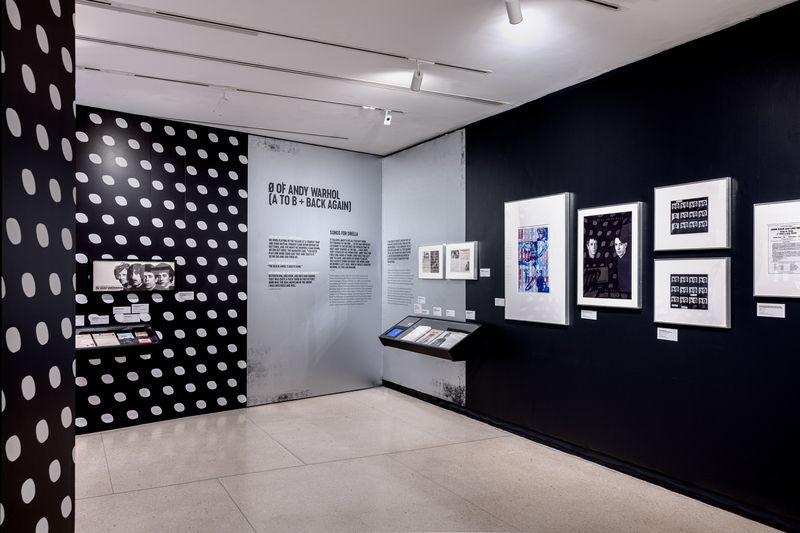
Perhaps the most famous location associated with The Velvet Underground is Andy Warhol’s studio at 231 E 47th Street. Known as The Silver Factory, this was the first of multiple Factory locations Warhol would create. Warhol had the walls covered in aluminum foil and everything else spray-painted silver.
Warhol first met The Velvet Underground at Cafe Bizarre. Warhol brought in female singer Nico to front the band and produced The Velvet Underground’s first record, The Velvet Underground & Nico, in 1967. Hanging out at The Factory, Reed and the other band members rubbed elbows with the rest of Warhol’s artistic crowd and soaked up inspiration. Reed’s song “Walk on the Wild Side” makes references to the characters who passed through the Factory. The location of the Silver Factory is now a parking lot. Other locations of The Factory included the 6th floor of the Decker Building at 33 Union Square West, 860 Broadway, and 22 East 33rd Street.
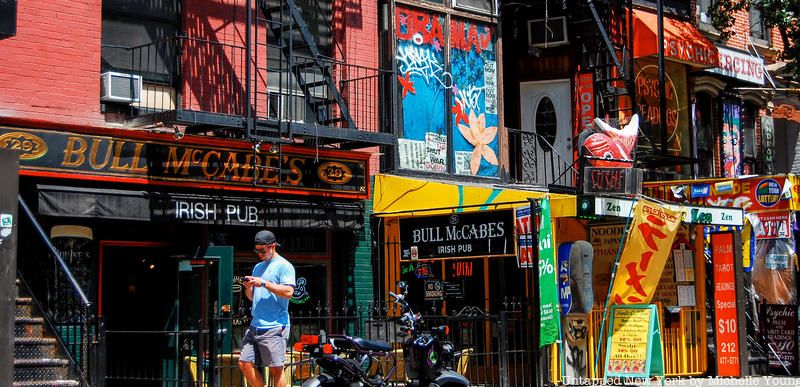
The Velvet Underground toured with Andy Warhol’s multimedia show Exploding Plastic Inevitable throughout 1966 and 1967, hitting cities including Los Angeles and Chicago, in addition to New York City. In lieu of a speech, Warhol premiered an earlier iteration of the show, then called UpTight, at the annual black-tie banquet of the New York Society for Clinical Psychiatry at the Hotel Delmonico.
The first performance of the Exploding Plastic Inevitable took place at The Dom in April 1966. The Dom was a popular nightclub and bar on St. Mark’s Place in the 1960s. The performance included a multi-screen film by Warhol, music performed by The Velvet Underground, and live dancers. It was a major cultural moment and all of the big names in New York City went out to see the show. EPI was performed in other locations around the city including Filmmaker’s Cinémathèque on Lafayette Street and The Gymnasium of Sokol Hall at 420 East 71st Street. The Dom later became the Balloon Farm, and then Electric Circus. The location has hosted a variety of different businesses since the nightclubs and bars left.
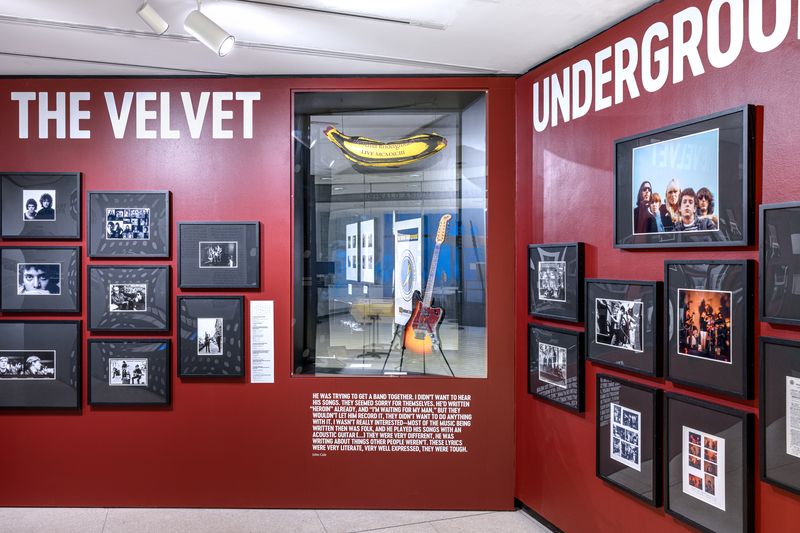
Max’s Kansas City at 213 Park Avenue South was a punk rock nightclub that operated from 1965 through 1981. Musicians and bands including David Bowie, Iggy Pop, Patti Smith, and of course The Velvet Underground frequented the spot. Artists like Andy Warhol, William de Kooning, and photographer Robert Maplethorpe often hung out there as well. The joint was considered a rival to New York City’s other punk rock club C.B.G.B.
Lou Reed played some of his last shows with The Velvet Underground at Max’s. The band also recorded a live album there in August 1970, Live at Max’s Kansas City, which was released in 1972. You can learn more about Max’s Kansas City in the documentary Nightclubbing by Director Danny Garcia which features interviews with Alice Cooper, Billy Idol, and others who were part of the Max’s Kansas City scene.
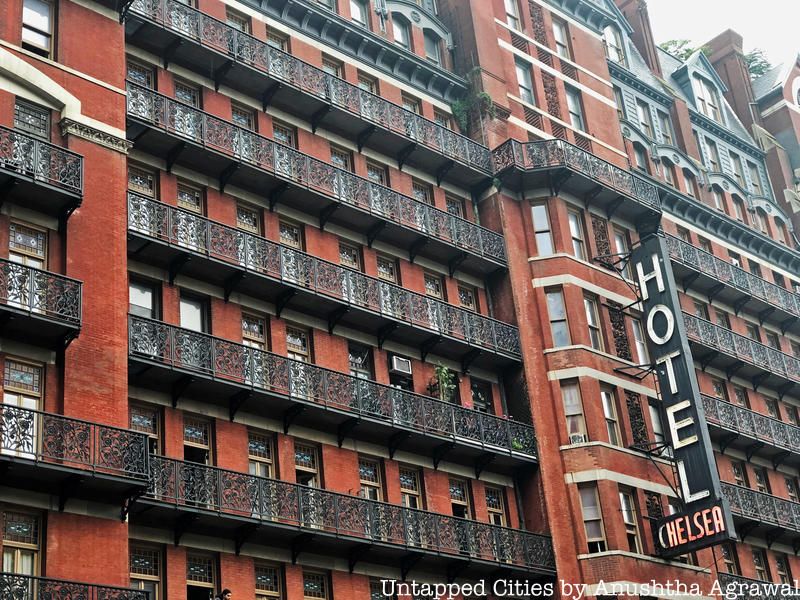
The Chelsea Hotel was a hot spot for all types of artists in New York City, especially rock and roll musicians. The historic hotel, which reopened in 2022 after an extensive renovation, was home to writers like Jack Kerouac, Dylan Thomas, and Arthur Miller, artists like Jackson Pollock and Robert Maplethorpe, and musicians like Patti Smith, Sid Vicious, and Bob Dylan.
Members of the Velvet Underground could also be found there. The song Chelsea Girls, the title track of singer Nico’s debut solo album, was written by Lou Reed and Sterling Morrison. The song was inspired by an experimental Warhol film of the same name which focused on various residents of the Chelsea Hotel.
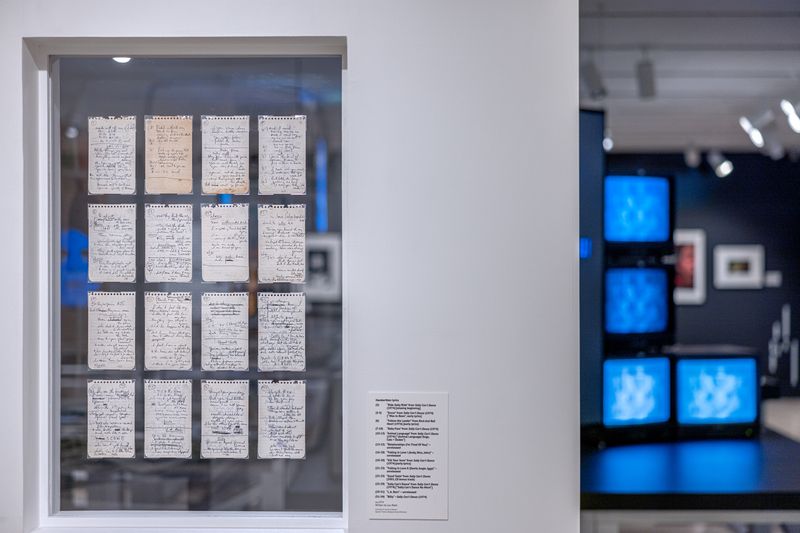
There are many New York City locations that appear in The Velvet Underground and Lou Reed’s songs. One of the most famous of these locations is the corner of Lexington Avenue and 125th Street which Reed sings about in the 1967 song “I’m Waiting for my Man.” The lyrics go, “I’m waiting for my man. Twenty-six dollars in my hand. Up to Lexington, one, two, five. Feel sick and dirty, more dead than alive.”
At the time Reed wrote those lyrics about someone waiting for his drug dealer, this corner of East Harlem was run-down. It wasn’t just a hotspot for drugs in the song, but in real life too. Photographer Camilo José Vergara trained his camera on the intersection in 2018 to see how the area had changed since being immortalized in the song. Now, the corner has been cleaned up and is much more lively, with people bustling around shops and hopping on and off the bus.
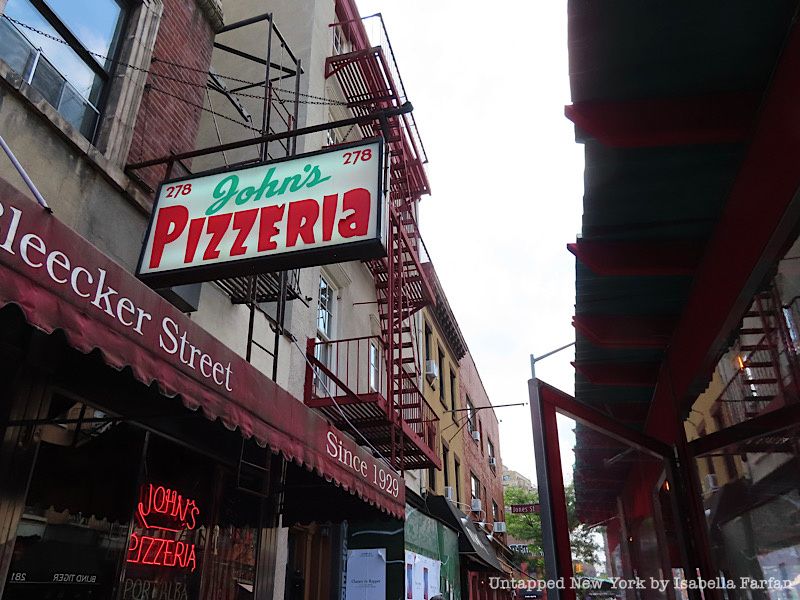
Artist and musician Laurie Anderson, who married Reed in 2008, told the New York Post that he loved the Margherita Pizza from John’s on Bleecker Street. Manager Mike Frank told The Post, “I used to wait tables here about 15 years ago and I was afraid to even talk to him because he seemed so serious, but finally I did. I started talking to him about [his album] ‘The Blue Mask,’ and his face kind of lit up. I think he was surprised I even knew it.”
Another favorite spot of Anderson and Reed’s was Russ and Daughters. Anderson told the paper that she and Reed visited weekly. Both establishments are long-time New York City staples.

Essentially all of New York City’s rock legends passed through CBGB, a famous music club in the East Village. CBGB & OMFUG (“Country Bluegrass Blues & Other Music for Uplifting Gourmandizers”) hosted shows by the Ramones, Talking Heads, Blondie, Sonic Youth, and Patti Smith among others. In a Rolling Stone magazine tribute article that came out after Reed’s death in 2013, Smith recalled running into him at CBGB in the 1970s after she had just covered his song “We’re Gonna have a Real Good Time Together.“
Reed returned to CBGB after it had been transformed into a John Varvatos retail store for the book launch of TRANSFORMER in October 2013. The book is a collection of photographs of Reed taken by photographer Mick Rock. The appearance was one of Reed’s last, as he passed away later that month.
Next, check out 10 NYC Haunts of Andy Warhol
Subscribe to our newsletter